You’ve been seriously injured in an accident, and while you weren’t at fault, you’re paying the price. A personal injury attorney can help you pursue compensation, and you know that hiring a lawyer is in your best interests. But how can you afford legal representation when the bills are piling up and you don’t know when or if you’ll be able to return to work?
At the offices of William Rawlings & Associates, we're here to put your mind at ease with a simple answer: Hiring a personal injury lawyer like one of our team members actually doesn't cost you anything. How could this possibly be the case? Let's have a look at how these setups work and why you shouldn't be concerned about attorney or related costs if you believe you have a legitimate personal injury claim.
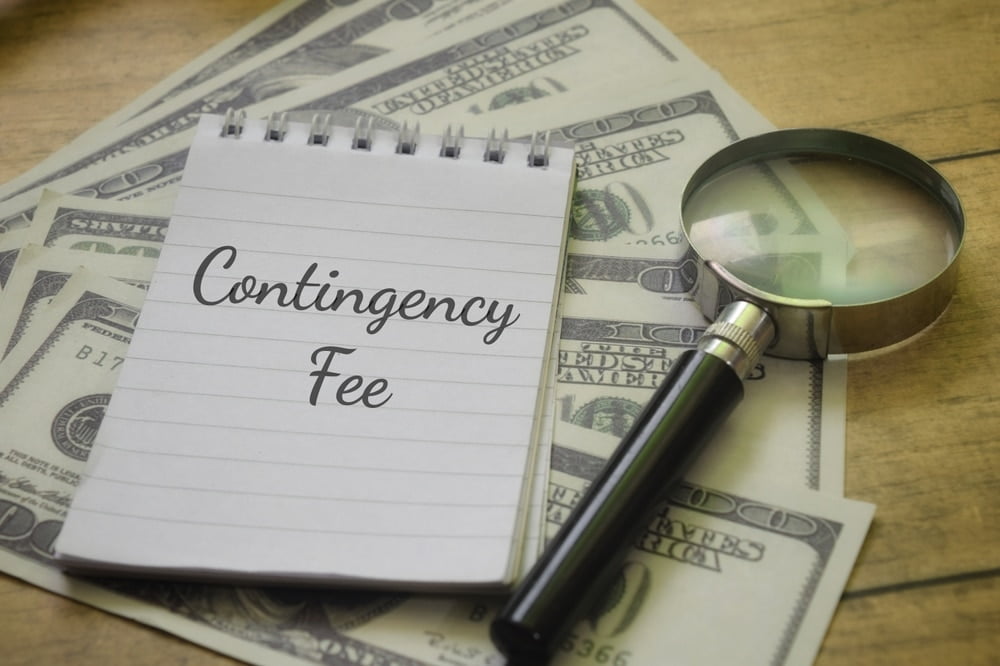
Most personal injury attorneys work via the use of what's known as a contingency fee agreement. Essentially, this document states that you’ll be provided with legal representation at no upfront cost. In the event your attorney wins your case, the arrangement establishes the amount they’ll receive – typically, this is a percentage of the damages awarded.
As a general rule, attorneys who offer contingency fee arrangements only accept cases in which they’re confident they can achieve a favorable outcome. And since they earn nothing unless they win, you can count on your lawyer making every effort to ensure that happens.
If your lawyer is successful in securing compensation in your accident case, they’ll take a percentage of the winnings. That’s how you’ll pay their fee for providing you with legal representation – there’s no need for you to come up with any cash.
With this type of arrangement, the amount your attorney receives is directly related to the amount of your settlement or jury award. Therefore, you can count on your lawyer to make every effort to recover the maximum in monetary compensation.
As a general rule, personal injury lawyers don’t require their clients to cover any of the costs incurred while settling or litigating an accident claim. Your attorney will likely take care of the court filing fees, document fees, traveling costs and other upfront expenses.
If your case reaches a favorable outcome, the costs associated with pursuing your case will be deducted from your accident settlement or award. Even if not, you typically won’t be responsible for any of these fees or expenses.
In cases where you win your case, your lawyer’s fee will normally be deducted directly from the amount of your settlement or jury award. This means that you’ll receive your payment shortly after receiving the money – significantly less than if you had to wait until after all court costs and other expenses were paid.
Now, there may be some exceptions here. The details of these will be included in your contingency fee agreement from the start.
All the factors we've gone over to this point have all helped highlight why it's so important to have a consultation with an experienced personal injury lawyer if you've been injured in an accident that wasn't your fault.
For starters, an experienced attorney will be able to assess the facts of your case and provide an accurate estimate on how much you may be entitled to receive in compensation. This can help give you a better idea about your financial outlook during the recovery process.
Additionally, a personal injury lawyer will also explain all the legal aspects associated with pursuing your claim, as well as any potential advantages or drawbacks that may exist. They can make informed predictions on whether the facts in your case make it likely that you'll be able to win your case or not, and let you know what financial resources might be available to you in the meantime.
This will help you make an informed decision on whether hiring a personal injury attorney is your best option for pursuing compensation. And if it is, they can advise you on how to move forward with the legal process while minimizing any out-of-pocket costs.
In the end, that’s what contingency fee arrangements are really all about – helping you get the legal representation you need without having to worry about the financial burden of finding an attorney. And this is why these arrangements can be so incredibly beneficial when it comes to pursuing your case and getting the compensation you deserve.
For more here, or to learn about any of our personal injury attorney services, speak to our team at the offices of William Rawlings & Associates today.
There are a few common questions that clients in personal injury cases often have for their attorneys or other professionals, and some of these tend to revolve around timelines. Clients naturally want do know how long a personal injury case will take to settle or otherwise be completed, and this is a realm that will depend on several specific factors.
At the offices of William Rawlings & Associates, we're happy to assist with any personal injury case you're involved in, providing high-quality attorney services for cases ranging from car and truck accidents to dog bite incidents, child injuries, malpractice suits and more. What are the key variables that will typically determine how long it takes to settle or otherwise resolve a given personal injury case? Here are several to be aware of.
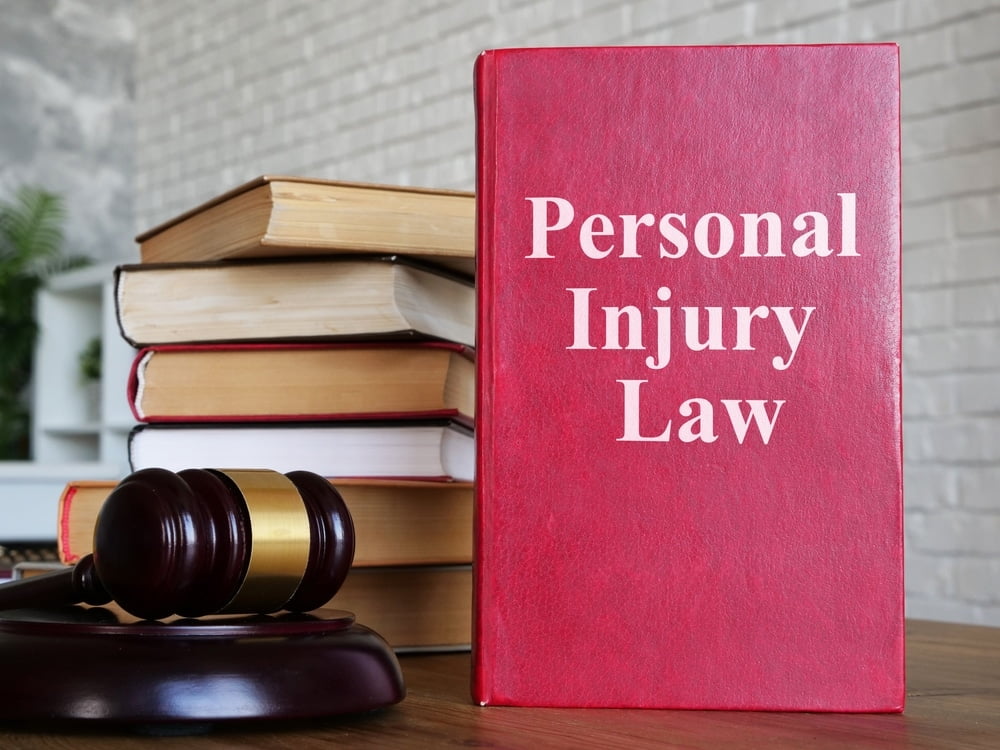
One of the first and most important factors that will often determine how long it takes to settle a personal injury case is the type of case in question. Certain cases may involve more complexity and/or require longer processes before they can be resolved, such as those involving medical malpractice or product liability issues.
For instance, if a medical malpractice case requires the examination of several documents, or if product liability needs to be proven by demonstrating a manufacturer's defective product, these may take longer to resolve than cases that involve more straightforward matters. On the flip side, certain cases are relatively more straightforward and can often be resolved quite quickly.
Another element that can influence how long it takes to settle a given personal injury case is whether or not the case will actually be settled. If both sides are able to agree on an out-of-court settlement, this could take anywhere from one to two months. However, if the parties decide against a settlement and the matter goes to court, then this process can take anywhere from one to three years, depending on the complexity of the case and several other factors.
Now, it's not always in a client's best interest to take a settlement - but the competition between wanting your just compensation and wanting the case to finish as quickly as possible can be tricky to navigate. For instance, many insurance companies will offer settlements early in the process, knowing that clients often have pressing bills that they need to pay.
However, it is important for clients to remember that an early settlement could be far less than what their case may actually be worth. Settling too quickly could also mean sacrificing certain rights or privileges that you would otherwise receive from pursuing the matter in court. This is where experienced legal counsel can play a major role in assisting clients with their cases.
For many personal injury cases, the severity of an individual's injuries can also be a major factor in determining how long it takes to settle a case. Cases involving serious injuries will often require more extensive types of care and therapy - plus, they may involve longer recovery times. As such, these cases must be dealt with greater care and caution, which could lead to longer settlement times.
In addition, the types of injuries can also influence how long it takes to settle a case. For instance, if an injury is classified as “permanent” or “catastrophic” then this could lengthen the process considerably as these cases may require more extensive compensation and/or greater legal aid.
Liability is another key factor to consider when it comes to how long it takes to resolve a personal injury case. If the defendant is able to prove that they are not at fault for the accident, then this could significantly delay the settlement process. On the other hand, if liability can be established quickly and without dispute, then this could help speed up the process.
For instance, many motor vehicle accidents involve two drivers, each of whom may be partially at fault for the accident. In such cases, liability must be established before any settlement can take place - which could delay the process if both parties are unwilling to admit fault or accept responsibility.
Overall, there is no “one size fits all” answer when it comes to how long it takes to settle a personal injury case. The timeline for each case is highly dependent on several specific factors and should be discussed with experienced legal counsel before any decisions are made. Ultimately, the settlement process can often be lengthy - but working with the right professionals can ensure that you receive the compensation that you deserve.
For more on this, or to learn about any of our personal injury attorney services, speak to our team at the offices of William Rawlings & Associates today.
Injuries can take place in a variety of settings, some of them public, and one such example is injuries that may be sustained during a concert or music festival of any kind. If you're injured in such a setting, is there a chance of obtaining compensation from a liable party? How should you be proceeding in such a situation?
At the offices of William Rawlings & Associates, we're here to help. Our broad range of personal injury attorney services spans the entire gamut of potential injury types, from car and truck accidents to wrongful death, brain injuries and many other specific types of cases. Which responsibilities do those attending concerts or music festivals have to avoid injury of their own accord, and when do possible injuries sustained move past this threshold and possibly allow for liability claims to be filed? Let's go over all of this, plus who claims can be filed against and how to consider such situations.
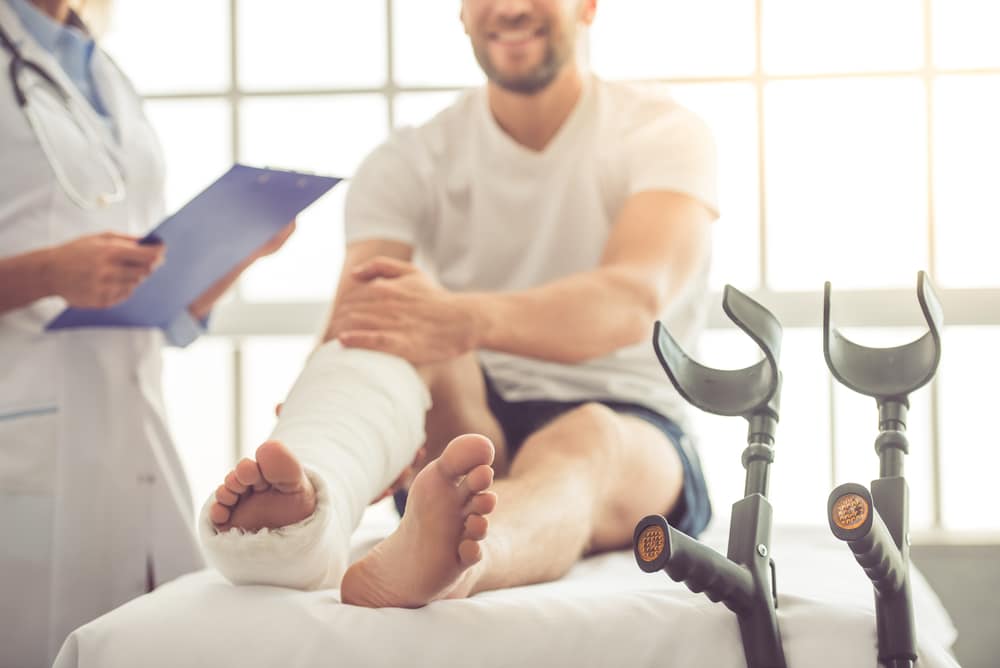
Just like in many other public settings, anyone who attends a concert needs to know that there are certain responsibilities that come with the ticket. Concerns such as hygiene, crowd control and other basic rules of etiquette should all be taken into account by each attendee – not only in consideration of courtesy and respect for others, but also to avoid injury to oneself.
Furthermore, any possible hazardous activities or behaviors (such as moshing) should be avoided, as these can represent a potential risk to oneself and other attendees. When such risks are accepted, it's possible that an injured person may not be able to recover any damages from their injury.
It's important to note that in many such settings, "acceptable" behavior differs from what would normally be accepted in other public settings – so it's important to understand what is and isn't allowed before attending a concert.
For a variety of different reasons, some due to individual fault and some due to that of a third party, there are multiple injury types that are somewhat common at concerts:
And down similar lines to our first section, many of these common injury types are those concert-goers are expected to be aware of. If you're attending a concert in a hot outdoor location, for example, you're expected to be aware of this and have water and other cooling measures available - and if you sustain heat stroke as a result of not doing so, it's very unlikely you'll be able to file a claim against any party, as this is only your own fault.
Now, the above said, there are definitely situations where someone injured at a concert may have a case - whether that case is against an individual or, perhaps, against the concert venue. Let's look at some situations where either of these options could be on the table.
In certain situations, a person injured at a concert may have a case against an individual. This can happen when someone is, for example, purposely attacked or harassed at a concert. In such cases, there may be grounds to file a claim against the attacker or harasser.
To get a bit more specific, let's say you're attending a concert and are purposely punched in the face by someone else there. In this case, you likely have a strong case against them for assault as well as battery. If successful, such a claim may result in medical bills being paid out as compensation from the attacker.
That's because, even at an aggressive concert where mosh-pitting or other behavior was accepted, something like a direct punch to the face is definitely not part of that accepted behavior.
In other cases, there may be grounds for filing a claim against a venue or event organizer. This could be in cases where premises are not adequately monitored and managed, which could then lead to an injury due to negligence on their part. One common such instance involves incidents where not enough security was present, leading to an individual being injured in the midst of a fight or other altercation.
In such instances, if it can be proven that the event organizer was negligent in their duties, then they may be liable for any injuries sustained. This is because they did not provide enough security to protect attendees - something which falls within their obligations as organizers of a public event. As such, it could be possible to obtain compensation from them for medical bills and other damages that may have been caused.
There may also be cases involving unsafe premises, such as dangerous or defective stairs, or floors that are slippery due to liquids or other substances. Here too, there may be a case against the event organizers for failing to address such safety problems in a timely manner.
In any of these situations, it's best to seek legal advice from an experienced attorney before attempting to file any sort of claim. That way, you can be sure to have the best chance of success. And at the same time, having legal advice on your side can help ensure that any claims made are still reasonable and well within the boundaries of existing laws and regulations.
For more on this, or to learn about any of our personal injury attorney services, speak to our staff at the offices of William Rawlings & Associates today.
If you've recently been injured in a car accident or have sustained major damage to the fault of your vehicle, and you believe the fault lies with another party, one of the first important steps to take here is retaining legal counsel. A personal injury attorney will help you prove liability of another party in your accident, ensuring you get the proper compensation for your injuries, vehicle damage and any other issues.
At the offices of William Rawlings & Associates, we're happy to provide car accident, truck accident and other vehicle accident attorney services for clients in Salt Lake City and other parts of Utah, plus numerous other personal injury programs as well. When you're first giving us a call or sitting down with one of our attorneys for a consultation about your case, what are some of the key questions and concepts you should generally be asking about, or which our attorneys will go over with you? Here are some of the most notable.

Typically, one of the first major subjects that our attorneys will discuss with you for car accident cases is understanding what potential damages could be awarded to you as a result of the accident. Our attorneys will tell you all about which damages are allowed in Utah, and they can help you understand how to prove your damages when it comes time to enter court or negotiate a settlement.
For instance, if you've sustained physical injuries due to the accident, you may be able to get compensation for your medical bills, prescription costs, physical therapy, lost wages and more. On top of that, if there was any property damage due to the accident -- such as vehicle damage or other repairs -- then this could also factor into your damages claim.
Naturally, another important factor in a car accident case is figuring out who and what individuals are liable for the accident. In some cases, it might be perfectly clear -- such as if you were rear-ended while stopped at a red light.
In other instances, there may be multiple factors that contribute to liability or fault; this is why it's important to work with a skilled car accident attorney to help you assess who could be held responsible for the damages, and how much each individual should pay. Our attorneys can review police reports, witness accounts and other important documentation in order to come up with an accurate assessment of liability in your case.
While your attorney may not necessarily be able to provide you with a concrete answer to this question at the start, they should be able to provide you with a general assessment of your case and how it may go in court. At William Rawlings & Associates, we're not afraid to take cases to trial if necessary; our attorneys are skilled litigators who can put up a great fight for you, giving you the best chance of winning your case.
That said, many cases do not end up going to trial. In many situations, defendants realize that the evidence against them is simply too strong, and they may opt to settle out of court. Our attorneys can also help with negotiating these settlements, ensuring that you get the compensation you deserve.
Another key point to understand is the potential deadlines for filing a car accident lawsuit. In Utah, personal injury cases generally must be filed within two or three years of an incident in order to be eligible; if you miss this deadline, it may not be possible to get compensation for your damages.
Our attorneys can provide guidance throughout this process and ensure that all necessary deadlines are met.
During the course of your case, you may receive settlement offers from the defendant's insurance company. It's important to know how to handle and assess these offers -- and more importantly, which ones are worth considering.
Our attorneys can provide valuable advice on understanding insurance company language, assessing offers and whether or not they are fair for your situation. We'll also provide guidance on how to negotiate if the offers don't meet your expectations.
It's also important to discuss the potential attorney fees ahead of time. Most personal injury attorneys typically operate on a contingency fee basis, which means that you won't pay us anything unless we win your case and you receive compensation for your damages; any fees are taken from the settlement itself.
Our attorneys will provide full disclosure on this information before entering an agreement with our firm, so you can be sure you understand exactly what you're signing up for.
As you work toward finalizing a case and getting compensation, it's important to have specific points of contact between you, your attorney and the opposing party. This is necessary for discussing settlement details, making changes to offers or any other communication between all parties involved.
Our attorneys can help set up these points of contact in a way that works for everyone involved; this will ensure smooth communication throughout the process.
At William Rawlings & Associates, we understand how difficult and confusing it can be to navigate a personal injury case. That's why we're here to guide you every step of the way -- from proving liability to negotiating settlements and getting the compensation that you deserve. Contact us today for more information about our services for any SLC or nearby client, both in car accident cases and many other personal injury settings.
It's common to wonder whether certain forms of income we receive are considered taxable, and one of the more nuanced areas here is found when one wins a settlement in a personal injury case. There are elements of personal injury settlements that are typically or always considered tax-exempt, but also several others where it's likely you'll have to pay taxes - and knowing which is which is important after you've won a settlement.
At the offices of William Rawlings & Associates, our wide selection of personal injury attorney services ranges from car accidents and wrongful death cases to dental malpractice, dog bite cases and many others. Here's a look into which elements of a personal injury settlement are typically taxable compared to those that aren't, plus which variables may impact this conversation in your case.

Because many personal injury cases take time to settle, plaintiffs may have to pay out of pocket for certain medical procedures or treatments related to their injuries before they receive their final settlement. According to the IRS, any payments made for these medical services are not considered taxable income because they are seen as reimbursement for funds that have already been spent.
However, if you claimed those expenses in a prior year's taxes, you will likely be required to consider those write-offs as income the next year once you receive your personal injury settlement.
A couple areas where settlements are almost never taxable are worker's compensation and survivor benefit cases. If you have to take time off work or are unable to return to your job because of an injury or the death of a loved one, any settlements related to those absences should not be considered taxable.
This also includes awards for loss of consortium, which are common in wrongful death lawsuits where the victim's surviving spouse wasn't able to have the same type of relationship with their partner because of their death.
In many personal injury cases, additional sums may be awarded for what's called "pain and suffering." This is a non-economic sum paid to the plaintiff in addition to any other damages that may have been incurred, and it's meant to act as compensation for the physical or emotional pain and anguish caused by the injuries.
This is one of the more nuanced areas when it comes to taxability. To wit: If "emotional distress" can be proven and linked to the injury in question, the money awarded here typically will not be taxable. However, if it's unclear that distress is actually linked to the injury, then this part of the settlement may indeed be taxable.
The realm of pain and suffering damages is one that really showcases the value of a strong attorney, as they will be able to make the argument to the court that these damages are, in fact, linked to the injury and not just a general sense of emotional distress.
In nearly all personal injury cases, lost wages are considered in the same way as typical wages. That is, they are almost always taxable in the same way that your regular paychecks would be. This includes lost wages that were part of a worker's compensation case, as those are typically considered taxable income as well.
The one exception here is if you can prove that the injuries you sustained have caused you to suffer a permanent disability that will prevent you from ever working again. If this is the case, then any future lost wages as a result of the disability may not be considered taxable.
Another somewhat curious area is that of attorney's fees. In cases where you pay these fees out of pocket to your attorney as the case goes on, these fees are almost always viewed by the IRS as tax-deductible.
However, on the other hand, if your lawyer fees are included in the award you receive in your settlement, and you have already claimed them as expenses, they will be taxed as standard income for that year.
Generally, any money you receive as part of a personal injury settlement is seen as "compensatory" in nature and not taxable. This includes all the damages we've discussed so far.
However, sometimes - especially in cases of gross negligence or recklessness - a court may also award "punitive" damages. These are meant to punish the negligent party in addition to compensating the victim, and they are almost always considered taxable.
This is because punitive damages are not seen as simply reimbursing the victim for their losses, but rather as a way to penalize the at-fault party beyond what's necessary to make the victim whole again.
There are also occasionally certain other kinds of damages out there, such as damages for breach of contract by an insurance company, that are not directly related to an injury. In cases like this, it really depends on the specifics of the damages and how they were incurred. If it can be proven that the damages are a direct result of the injuries sustained, then they may not be taxable. However, if there is no clear link between the injuries and the damages, they will likely be considered taxable.
The best way to ensure that you understand the taxability of your personal injury settlement is to speak with an experienced attorney who can help you navigate the often-complex world of tax law. They will be able to help you understand how your particular situation may be affected and what, if anything, you can do to minimize your tax burden.
For more on this, or to learn about any of our personal injury attorney services, speak to our staff at the offices of William Rawlings & Associates today.
If you've recently been injured in a car accident, a few key factors may play a role in determining who is liable for the injuries and trauma you've suffered. In certain cases, a chief culprit will quickly be identified: Airbags in your vehicle that either failed to deploy entirely or deployed in improper or unsafe ways.
At the offices of William Rawlings & Associates, we're here to provide high-quality attorney services for any kind of car accident liability case you're pursuing, including cases where the airbag(s) in your vehicle are a key consideration. What are some reasons why airbags might not deploy, and which steps should you be taking to receive just compensation if you believe your airbags did not deploy properly and contributed to - or even caused - your injuries? Let's take a look.
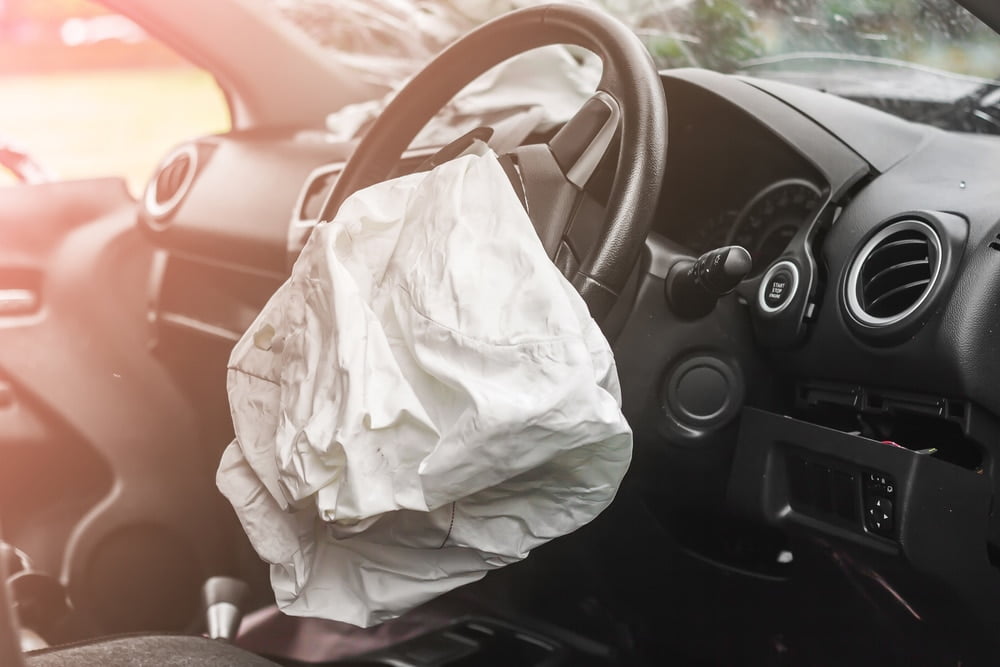
There are a few different reasons why airbags may not deploy during a vehicle accident. Some of these are either due to the fault of the driver or can't really be blamed on anyone; others, however, may speak to faultiness with the airbags, the vehicle design or some related element that may implicate another party. Here are some of the most common:
As we touched on above, some of the causes of a lack of airbag deployment won't allow for any kind of liability case. For instance, if you manually turned off your car's airbags before an accident - as some people do if they're transporting an infant or small child - then it's not likely that you'll be able to sue anyone for injuries related to a lack of airbag deployment.
In other cases, however, another party may definitely be at fault. For example, if a car manufacturer installs faulty sensors in their vehicles, leading to a number of airbag-related injuries, they may be held liable in a class action lawsuit. Similarly, if an auto mechanic installs airbags incorrectly, they may be held liable if those airbags fail to deploy and someone is injured as a result.
There are also cases where the individual manufacturer of the airbag technology itself may be at fault. In these cases, it may be possible to file a product liability claim against the company responsible for making the airbags.
If you've been in a car accident and believe that your airbags should have deployed but did not, there are a few steps you should be taking. Here's a rundown:
If you or someone you love has been injured in a car accident, it's important to understand all of your legal options. To learn more about how we can help, contact our staff at the offices of William Rawlings & Associates for assistance with this or any kind of personal injury claim.
There are many things that may come up within a given personal injury case or any other form of civil claim, and one of these may involve a need or desire to change attorneys. Whatever your reason for this desire, is this something that's possible? If so, what needs to be done to carry it out?
At the offices of William Rawlings & Associates, we're happy to provide a wide range of personal injury attorney solutions, including cases ranging from car accidents to dog bite injuries, wrongful death cases and numerous others. Here's a rundown on the world of changing attorneys during a personal injury case -- whether it's possible (hint: it is), why you might consider it, and how to go about this process if you've made this decision.
The simple answer here, like in nearly all forms of legal practice, is "yes." It's entirely possible to change attorneys during a personal injury case. However, there are some things you'll want to consider and keep in mind as you go through this process.
There are some cases where an attorney change is necessary or even legally required, such as if the attorney you're working with is unable or unwilling to continue with your case. However, there are also reasons that may be less legally mandated and simply driven by choice -- such as if you feel like the attorney isn't providing satisfactory legal services or acting in accordance with your interests.
For example, some of the common reasons for changing attorneys include the following:
In some cases, while less common, attorneys may actually come to their clients for the switch. For example, if you're a client but your attorney is leaving their firm for another job opportunity or other situation, it's possible that they'll recommend that you change attorneys. This can be an effective way to handle this type of situation, given that the relationship between the two parties is still intact and professional without being adversarial.
If you've decided to change attorneys during your case, the process can be very similar to that of initially hiring a lawyer. There are a few important elements of research that you'll want to keep in mind as you go through this process, including these key factors:
Once you've identified the attorney you want to switch to, move to our next section for the steps on doing so.
Here are the simple steps to follow while switching lawyers in a personal injury case:
Keep in mind that some cases may also require you to notify opposing counsel of the switch and have them update their records accordingly.
Switching attorneys can be a difficult decision, but it may also be necessary to get the results you need in your case. If you're considering this option, take some time to discuss it with your attorney and prepare for the transition so that everything goes smoothly. With these steps, you'll be well on your way to a new attorney without any issues.
If you're looking for a quality personal injury law firm to consider for any such need, our team at the offices of William Rawlings & Associates is standing by. Contact us today!
Have you been seriously injured in a Utah truck accident? Lawyers know the ins and outs of personal injury cases, and turning to an experienced local attorney is the best way to get the information and advice you need.
That said, injuries like yours might have you worried about the costs of medical care and your inability to work – and learning about the damages you may be entitled to may help ease your mind. Here, the experienced legal team at William R. Rawlings & Associates explains the basics.
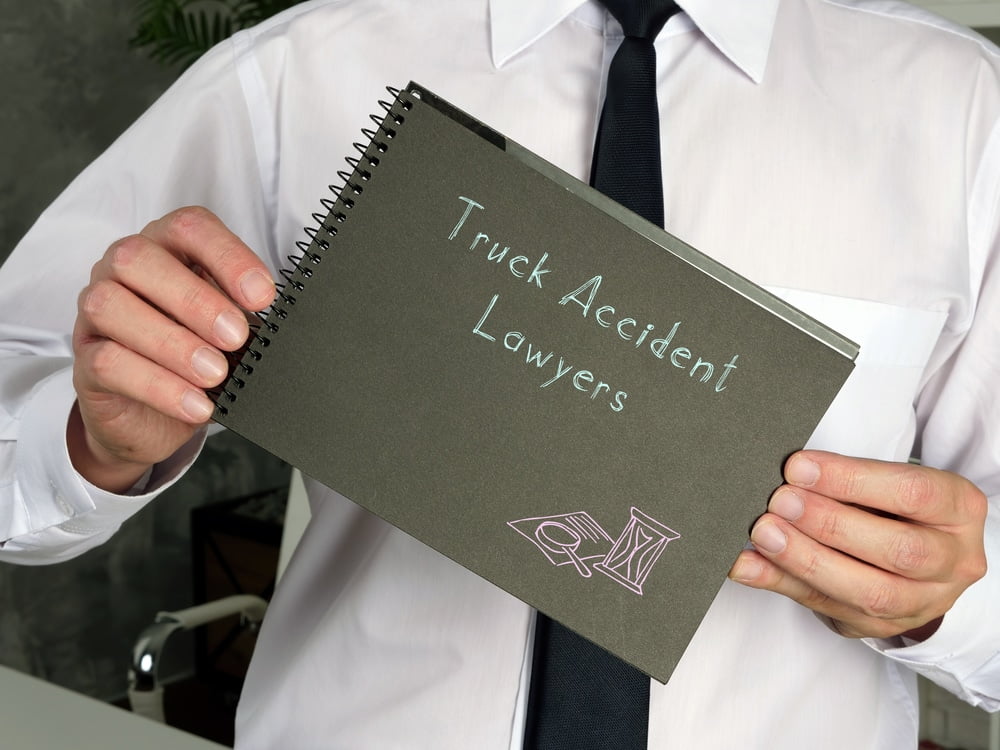
Personal injury lawyers use the term “damages” to refer to the monetary compensation an accident victim can pursue for their injuries and financial losses.
Personal injury cases are meant to hold a party or parties accountable for their actions, and to recover damages, you must be able to prove that someone else’s negligence directly led to the trucking accident and the injuries you suffered.
When more than one motorist is involved in an accident in Utah, the percentage of fault for each party affects the outcome of a personal injury case.
Utah has a comparative negligence law, which basically means that an assessment of a trucking accident is required to determine how much blame should be placed on each motorist. The amount of compensation you may receive from each party will be equivalent to their percentage of fault. And if you’re found to be at least 50 percent responsible for the accident, you may be barred from collecting any damages.
In Utah, truck accident victims have the legal right to pursue both economic and non-economic damages. In rare cases, punitive damages may be awarded.
Economic damages, also known as special damages, are meant to provide compensation for actual, measurable financial losses related to the truck accident. A lawyer may recommend seeking these economic damages:
Non-economic or general damages in personal injury cases are meant to provide monetary compensation for intangible losses incurred in a truck accident. A lawyer can determine which of the following non-economic damages apply to your case:
Experienced truck accident lawyers know that punitive or exemplary damages are rarely awarded in the state of Utah. This is because punitive damages are intended to be a punishment for the at-fault party for gross negligence and to deter others from acting in the same manner.
Sometimes, the injured victim in a Utah truck accident and the at-fault party or parties come to an agreement in a timely manner – but that’s not the norm.
More often than not, people with serious injuries need to fight for the compensation they deserve. Many end up waiting far too long, and for some, filing a lawsuit is the only way to recover damages. Delays in the process are to be expected, yet you don’t have all the time in the world to resolve the situation.
In Utah, the statute of limitations for personal injury cases is four years – and in your case, the clock started ticking on the day of your truck accident. Any lawsuit filed after that time won’t be legally valid. Be aware, too, that property damage claims have a three-year deadline. So, you have even less time to make a claim for compensation for your damaged vehicle and any other items in poor condition as a result of the accident.
To recover damages as quickly as possible – and to receive the maximum in compensation for your injuries and losses -- you need an experienced Utah truck accident lawyer, one who knows how to win. That’s what you’ll get with William R. Rawlings & Associates.
Our legal team will fight to ensure that you receive every dollar you’re owed, and while we’re able to settle most personal injury cases, we’re not afraid to go to trial. Our truck accident lawyers have been representing injured victims like you for more than 35 years, and no other Utah law firm is as dedicated to reaching the best possible case outcome.
Working with William R. Rawlings & Associates is risk-free, as we don’t charge legal fees unless we obtain damages in a personal injury case – and the initial consultation is always free. To meet with one of the best truck accident lawyers in Utah, contact us today.
Most people in Utah only call a personal injury lawyer when they need help getting started with an accident claim. That’s only to be expected, of course – attorneys are like plumbers, electricians and other service professionals in that clients contact us only when necessary.
But, this does lead many to wonder what to expect when contacting a personal injury lawyer for the first time. For an explanation, take a look at the following.

When you call a Utah law firm about an accident claim, you’ll want to have some info handy – a personal injury lawyer will need to get at least some of the facts to determine if and how they can help. You can generally expect to be asked 4 out of the 5 W’s:
As for the last of the 5 W’s, the why, that’s pretty obvious – the need for legal advice is why you’re calling a personal injury lawyer. And at this point, after you answer the questions above, the law firm representative you speak with should have a good idea as to whether they can assist with your accident claim. If so, you’ll be invited to the office for a free, no-obligation consultation.
During the initial phone call to a personal injury lawyer, you’ll only be providing basic information. For the full picture of what your accident claim may entail, the attorney will need to learn all about the facts and circumstances surrounding your case. They’ll get that info when you come into the law firm office for an in-person consultation.
You’ll sit down to chat one-on-one with the personal injury lawyer, and your first step will be to explain what happened and what damages you’ve sustained as a result of the accident. After sharing your story, the attorney may ask a few follow-up questions:
Personal injury cases hinge on the evidence. An attorney will need to be able to prove that someone else’s negligent or wrongful actions were the cause of your injuries and that you have suffered financial losses as a result. So, you’ll need to provide the personal injury lawyer with any documents you may have that pertain to these matters – if you have any of the following documents, you should bring them along to the consultation:
Depending on the number and nature of documents you provide, the personal injury lawyer may not thoroughly review everything right away. However, after taking a look at all of the paperwork, they’ll have a good idea as to the strengths and weaknesses of your accident claim.
While the primary purpose of a personal injury lawyer consultation is to find out if you have a case and how the attorney can help with your accident claim, you can and should ask your own questions. That way, you’ll be able to figure out if the lawyer you’re meeting with is the right one to hire.
What should you ask? Any question that can help you get a sense of whether or not you want to work with the lawyer is a smart one to ask – use these questions as a starting point for your list:
Keep in mind, any questions that are specific to your personal injury case may not be fully answered during the consultation. That being said, you should get enough information to decide if the attorney is a good fit for you – and if you don’t feel that happened, look for a different Utah law firm.
The legal team at William R. Rawlings & Associate has been protecting the rights and interests of accident victims for decades, and we’d love to have a chat about your case. We work with a limited number of clients so that we can provide each one with ample time and attention – and we’ll do whatever we can to help you obtain the compensation you deserve.
For a free consultation to discuss your accident claim with an experienced Utah personal injury lawyer, contact our law firm office in Draper or West Valley, Utah, today.
Legal professionals aren’t always held in the highest regard by the public. Personal injury attorneys, in particular, are often viewed unfavorably – and while this area of the law may make for good joke material, the stigma surrounding accident lawyers keeps some injured victims from getting the help they need.
As a long-standing Utah law firm, we frequently hear about people who suffer serious injuries due to someone’s negligent or wrongful actions, yet decide not to get legal assistance. Their reasons for refraining from hiring a lawyer are varied, but many people have concerns that are based on misinformation and incorrect assumptions and about accident attorneys.
Here are some of the reasons people hesitate to contact a personal injury attorney – and why you shouldn’t let any of those reasons stop you from getting legal advice.
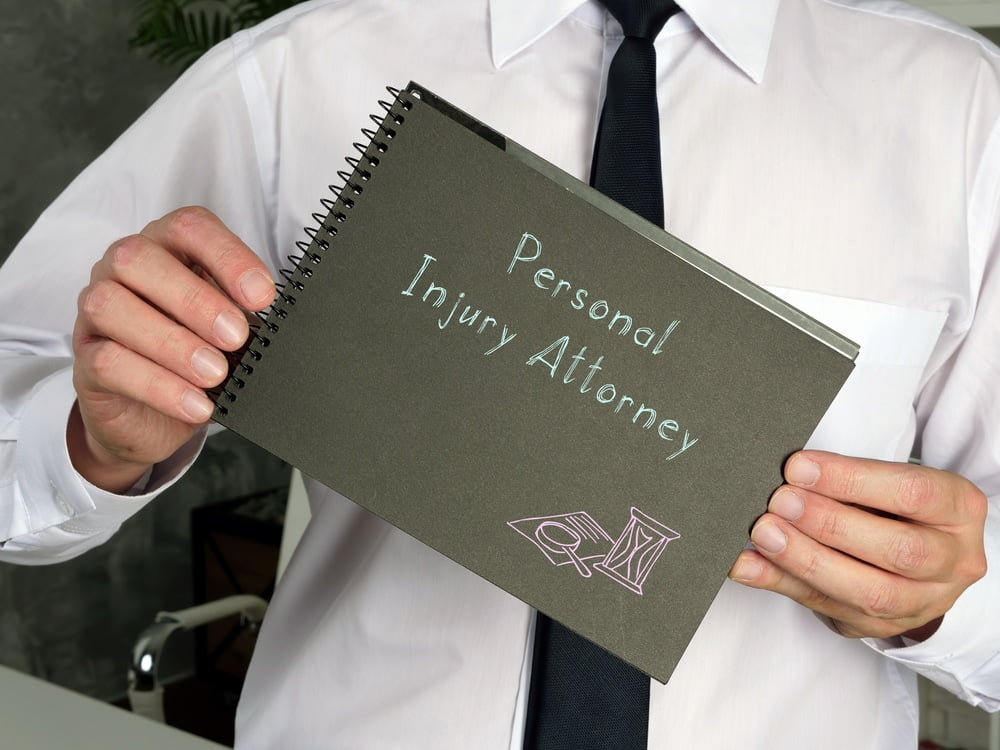
Like those with other areas of expertise, lawyers need clients – and the specific clients that personal injury attorneys need happen to be accident victims. However, the stereotypical image of a lawyer lurking around the hospital in hopes of getting a client is a false one.
Rule 7.3 of Utah’s Rules of Professional Conduct states that attorneys cannot solicit clients over the telephone, through the internet or via in-person contact. So, reputable accident attorneys don’t seek out injured victims at the hospital or anywhere else, as doing so would be violating ethics rules. Predatory lawyers are out there, but this type of behavior is far from the norm.
Many people think that the real winners in any sort of injury claim are money-grubbing lawyers, but that’s really not the case. Getting the largest possible settlement or jury verdict is certainly the goal of any Utah personal injury attorney – but that’s mutually beneficial.
It may appear as if an injury lawyer only cares about money, but seeking the maximum in damages for a client is the only way an accident attorney can hold the at-fault party accountable for the pain and suffering they’ve caused. Legal professionals fight for justice on behalf of their clients, and that justice just happens to be in the form of monetary compensation.
Insurance adjusters often tell people that a personal injury attorney is only going to take money out of their pocket, leading Utah accident victims to believe that hiring a lawyer is a steep and unnecessary expense. But adjusters advocate for insurance companies, not for the injured.
Accident attorneys don’t take money away from their clients – actually, people who have legal representation typically walk away with more money than those who don’t. Furthermore, personal injury lawyers work on a contingency fee basis, which means clients don’t pay a dime in legal fees unless the attorney wins or settles their case. Clearly, no accident victim should worry about legal costs.
Serious injuries can turn a person’s life upside down, and accident victims often find that dealing with everything can be difficult. With the pain and suffering, the many medical appointments and the stress of dealing with insurance adjusters, who has the time or energy to talk to a personal injury lawyer?
Frankly, that’s exactly why people who suffer serious injuries in an accident should make a point of hiring an attorney. After someone hands their case off to a Utah law firm, the legal team takes over the insurance negotiations. With that, the injured victim is free to focus on recovering and all of their other priorities instead of having to spend time on their legal case.
Utah accident victims aren’t require to have legal representation. Anyone injured due to the negligence or wrongful actions of another can choose to handle their own case, and with all of the information available online, it’s possible to obtain a decent settlement without an attorney.
But, going that route is quite challenging. Insurance companies know that someone who isn’t working with a personal injury attorney are much less likely to file a lawsuit. As such, adjusters are much less likely to make reasonable offers. Going it alone rarely leads to the most favorable outcome – in most cases, accident victims who represent themselves don’t end up getting the fair value of their claim.
If you’ve been seriously injured in a car accident, trucking collision, bike crash, animal attack or any other type of incident, you deserve to be fairly compensated for your losses – and the truth is, insurance companies don’t play fair. Turn to an experienced personal injury attorney, and you can get the help you need to maximize your claim.
At William R. Rawlings & Associates, a highly respected law firm located in northern Utah, we offer free consultations to accident victims. If you’re on the fence about hiring a lawyer, discussing your case with a member of our legal team may help. We’d love to answer your questions and address your concerns.
To make an appointment with a friendly, knowledgeable and compassionate personal injury attorney, contact our office in Draper, Utah, today.